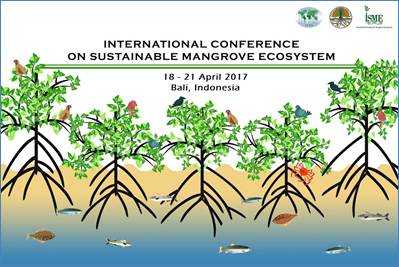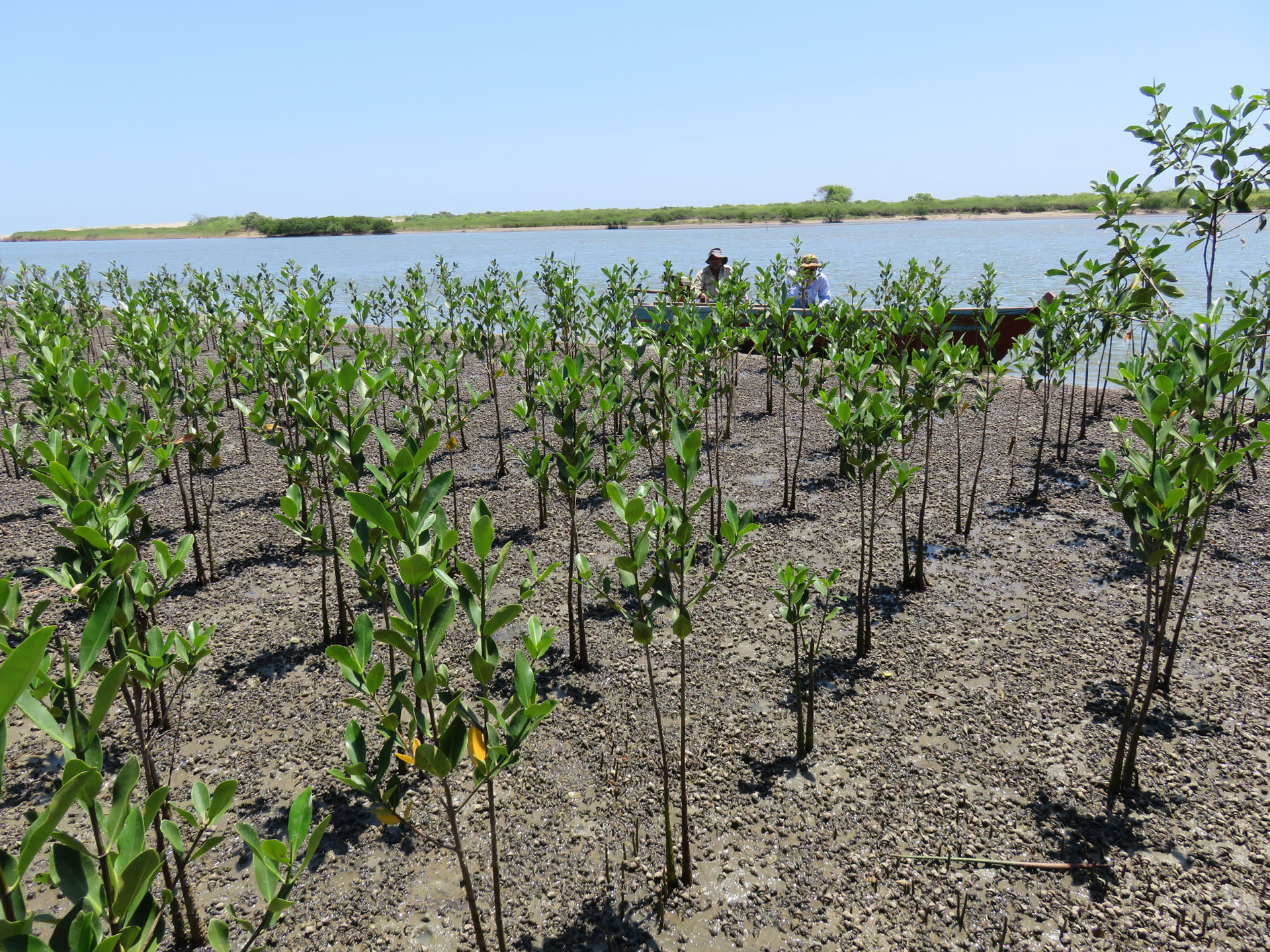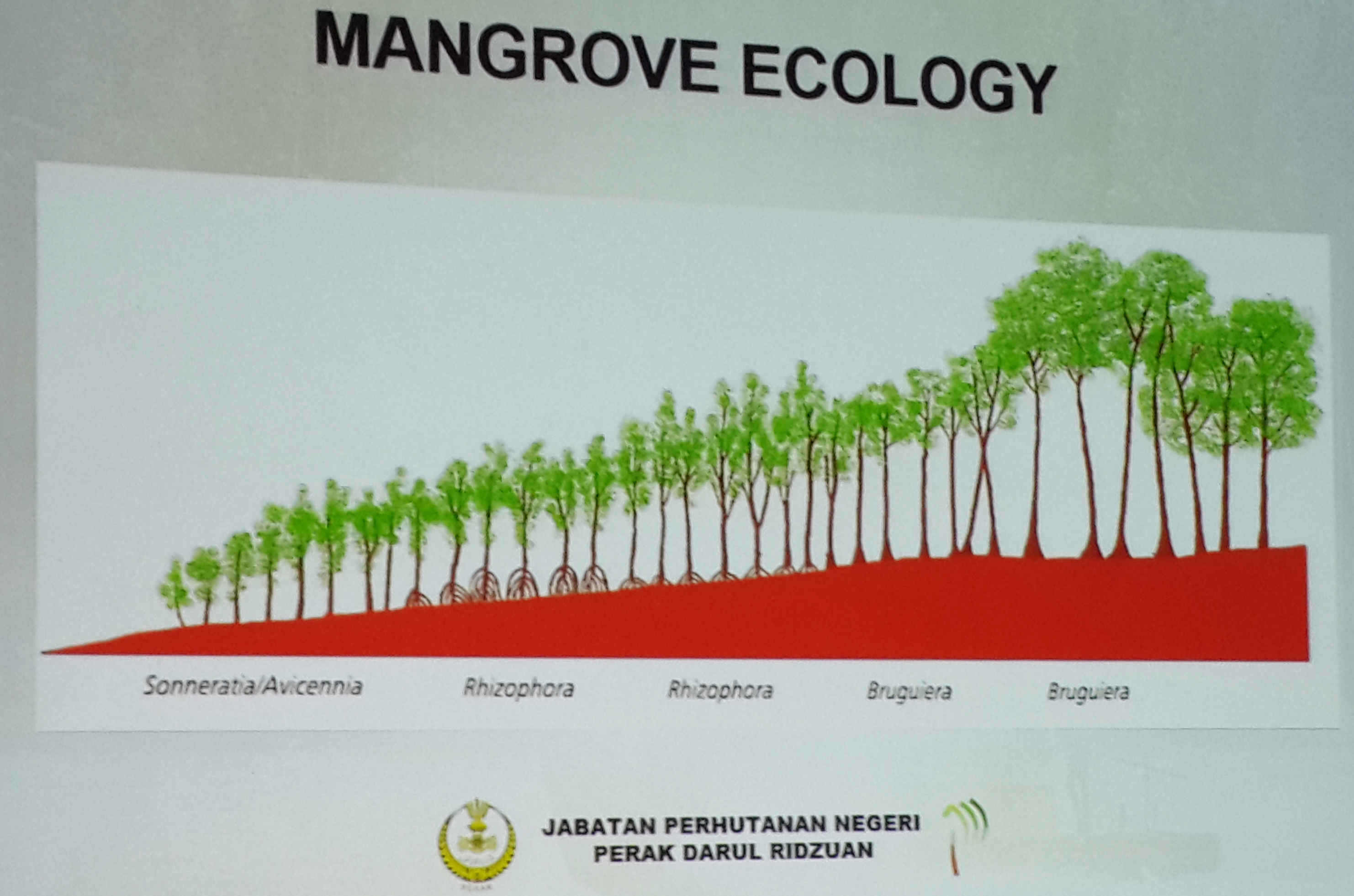Mangrove Conference

Thematic areas
 The conference will be structured around seven main thematic areas and a field visit to mangrove forests in Bali. Each theme will begin with a keynote presentation, followed by short presentations by panelists featuring case studies on the protection and sustainable management of mangrove forests and the restoration of degraded mangrove ecosystems. The presentations by panelists will be analytic rather than descriptive, focusing on issues, challenges and lessons learned. They will be followed by discussions in which all participants will be encouraged to contribute. The conference will be structured around seven main thematic areas and a field visit to mangrove forests in Bali. Each theme will begin with a keynote presentation, followed by short presentations by panelists featuring case studies on the protection and sustainable management of mangrove forests and the restoration of degraded mangrove ecosystems. The presentations by panelists will be analytic rather than descriptive, focusing on issues, challenges and lessons learned. They will be followed by discussions in which all participants will be encouraged to contribute. |
This theme will discuss lessons learned and challenges in promoting the sustainable management and use of mangrove forests, including silvicultural systems and forest conservation, in the context of socioecologically productive landscapes and seascape management. Presentations will address national mangrove strategies, mangrove land-use zoning (e.g. conservation, management and conversion), integrated costal management systems, and initiatives to support the achievement of targets 14.2 and 15.2 of the Sustainable Development Goals (Target 14.2: By 2020, sustainably manage and protect marine and costal ecosystems; Target 15.2: By 2020, promote the implementation of sustainable management of all types of forests). |
Discussions on this theme will address opportunities for, and challenges in, addressing climate-change adaptation and mitigation through sustainable mangrove management and use. The Blue Carbon Initiative will be discussed as a way of capturing opportunities for climate financing. Case studies will be presented on carbon sequestration in mangrove forests, mangrove adaptation to climate change, and the ecological and environmental values of mangrove ecosystems. Presentations will be made on the economic valuation of mangrove ecosystems, payment schemes for mangrove environmental services, and engaging the business community. |
Discussions on this theme will address tenure security; ensuring the effective participation of communities, women, civil-society organizations and other local stakeholders; developing effective benefit-sharing and distribution models; and traditional knowledge. Experiences with community-based management approaches and livelihood improvements, including ecotourism and integrated shrimp aquaculture and mangrove protection, will be presented with the aim of increasing the potential to diversity income sources of mangrove-dependent communities while enhancing their contribution to mangrove protection. |
 Theme 4: Restoration of degraded mangrove forests and ecosystems Theme 4: Restoration of degraded mangrove forests and ecosystemsThe restoration of degraded mangrove forests should be pursued in ways that incorporate both scientific silvicultural principles and traditional knowledge, adapted to local conditions to assist the recovery of resilience of mangrove ecosystems at the disturbed site. Discussions on this theme will address best practices in mangrove restoration to increase a success rate for restoring degraded mangrove forests, including the design of a restoration programme by assessing the ecology of mangrove species at the site as well as supporting mechanisms and positive incentives to replant on devastated shrimp ponds. |
Various governmental agencies, such as fisheries, forestry, coastal planning, agriculture and environment, have jurisdiction over coastal resources, and their policies are often in conflict. It is important, therefore, that relevant government agencies and stakeholders work together to establish sound policies and legislation. This theme will address lessons learned from mangrove governance and the challenges encountered. Experiences with strengthening law enforcement against illegal activities will be presented, along with improved monitoring systems in order to better assess progress towards sustainable mangrove management. |
Initiatives such as the International Partnership for Blue Carbon and the Mangroves for the Future (MFF) Initiative are helping raise awareness of the important environmental services provided by mangrove forests, such as climate-change mitigation, and the need to pay for these. Mangrove-based ecotourism operated by local communities and the private sector is increasing in many tropical countries, and, in Indonesia, the certification of mangrove forests is showing promise. Presentations and discussions on this theme will address the valuation of mangrove-related environmental services, experiences in developing payment schemes for environmental services, and policies and legal frameworks for increasing demand for the environmental services provided by mangrove forests. |
 Theme 7: Increasing research, education and awareness Theme 7: Increasing research, education and awarenessThere is an urgent need for more research and public education and awareness on many aspects of mangrove restoration, conservation and sustainable use. Presentations on this theme will address innovative research on ecological resilience, silvicultural interventions for sustainable mangrove management, and the use of mangrove forests as renewable sources of bioenergy. Discussions will also cover education and awareness-raising among the public, including local communities, on the restoration, conservation and sustainable use of mangrove ecosystems. |
| Panel discussion: “The way forward: international cooperation on mangrove ecosystems for the Sustainable Development Goal 14 (“life below sea”) and the Paris Agreement relating to REDD+ and joint mitigation and adaptation” Based on the outcomes of discussions, recommendations will be made for increasing international cooperation aimed at scaling up the restoration, conservation and sustainable management of mangrove ecosystems worldwide. |